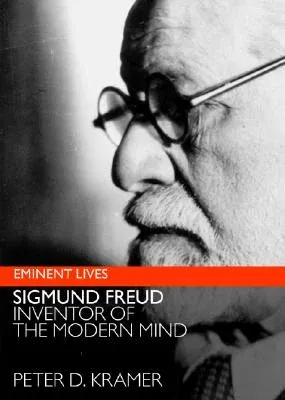Peter D Kramer
(Author)Freud: Inventor of the Modern MindHardcover, 21 November 2006

Qty
1
Turbo
Ships in 2 - 3 days
In Stock
Free Delivery
Cash on Delivery
15 Days
Free Returns
Secure Checkout

Part of Series
Eminent Lives
Print Length
224 pages
Language
English
Publisher
HarperCollins Publishers
Date Published
21 Nov 2006
ISBN-10
0060598956
ISBN-13
9780060598952
Description
Product Details
Author:
Book Format:
Hardcover
Country of Origin:
US
Date Published:
21 November 2006
Dimensions:
18.75 x
13.56 x
2.29 cm
ISBN-10:
0060598956
ISBN-13:
9780060598952
Language:
English
Location:
New York, NY
Pages:
224
Publisher:
Series:
Weight:
281.23 gm